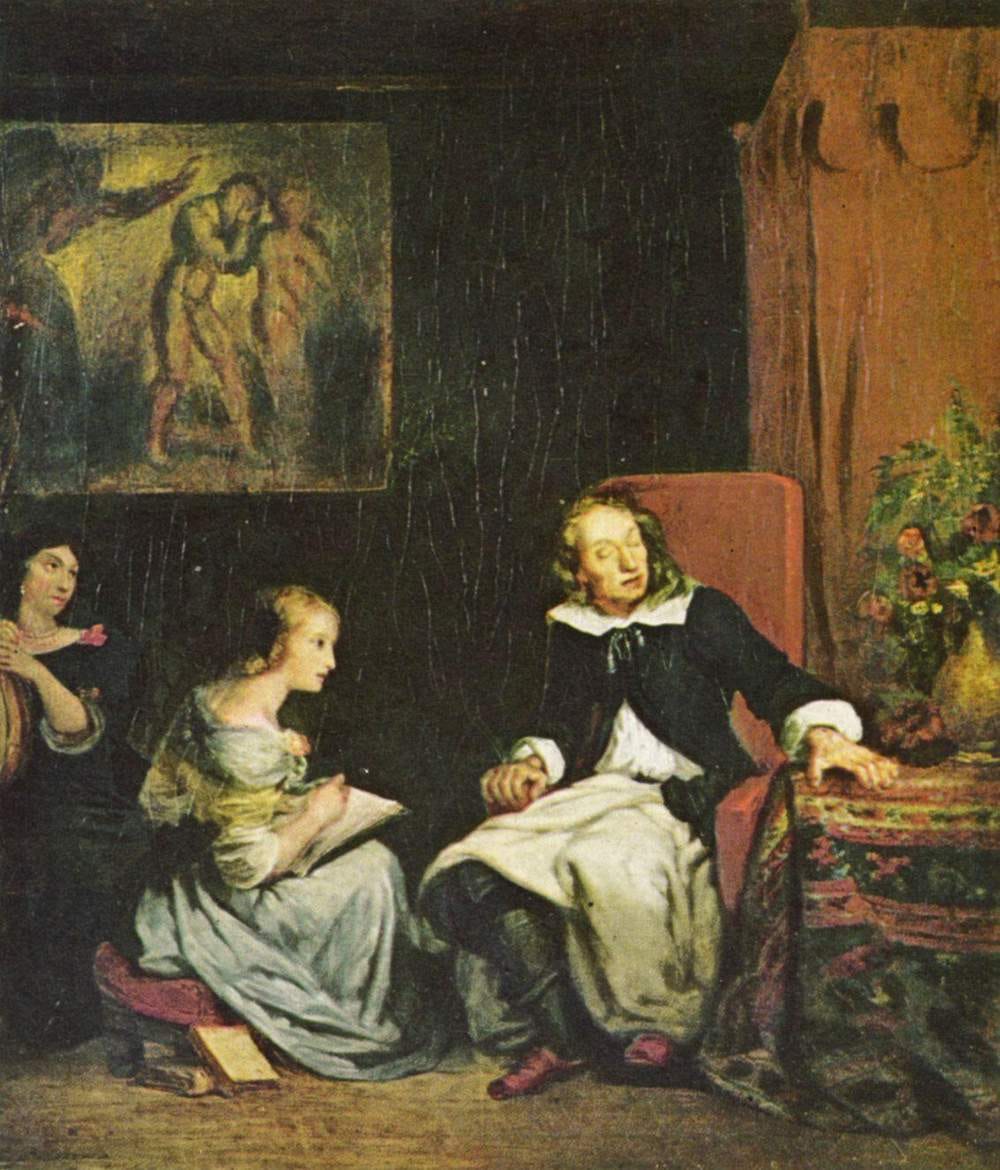Sunday Pages: A Pair of Centuries-Old Sonnets by God-Fearing Poets Named John
Hope springs eternal.
Dear Reader,
Today is Easter Sunday, the holiest day of the liturgical year.
Although it is a Christian holiday, almost everything about Easter is pagan in origin: the name (from “Astarte,” a pagan god), the springtime symbolism of the bunny and the egg, the determination of the date (first Sunday after the first full moon after the vernal equinox)—even the story of the Resurrection, which goes back to ancient Egypt, predating AD 33 by thousands of years.
I have long moved on from the formal Catholicism of my youth, but I have come to regard Easter, because of its pagan roots, as a (small “c”) catholic holiday, with universal vernal themes (in the Northern Hemisphere, at least). At its core, it is a celebration of rebirth, renewal, fertility (meaning creativity of all kinds, not just babies), and, above all, hope.
Whatever you may believe, my wish for you today is that your sense of hope be renewed, refreshed, and replenished. These next few months are going to be arduous and difficult, but my faith remains absolute and unwavering: just as the sun shall rise each morning, so we shall prevail!

The pieces of fiction I will run in the coming weeks, while excellent, did not seem appropriate Easter fare (Catholic sensibility dies hard). So I thought I would instead share two very good, very old poems, both sonnets, both written by deeply religious poets named John, both concerning the poet’s struggles with his relationship to God.
The first is by John Donne (1572–1631), author of one of my favorite poems, “A Valediction: Forbidding Mourning,” simply one of the most beautiful expressions of love even written, which I cannot recite without being moved to tears (when I demonstrated this in the creative writing class I taught a few years back, the students all thought I was insane). Today’s offering is one of Donne’s “Holy Sonnets,” in which “three-person’d” refers to the Trinity:
Batter my heart, three-person’d God, for You
As yet but knock, breathe, shine, and seek to mend,
That I may rise and stand, o’erthrow me, and bend
Your force to break, blow, burn, and make me new.
I, like an usurp’d town to another due,
Labor to admit You, but oh, to no end.
Reason, Your viceroy in me, me should defend,
But is captiv’d, and proves weak or untrue.
Yet dearly I love You, and would be lov’d fain,
But am betroth’d unto Your enemy.
Divorce me, untie or break that knot again,
Take me to You, imprison me, for I,
Except You enthrall me, never shall be free,
Nor ever chaste, except You ravish me.
Next, the 19th sonnet by John Milton (1608–1674), best known for his terminally underrated Paradise Lost, which contains more quotable lines than you can shake a stick at, and which, contrary to popular belief, is not about religion at all, but is rather an argument about monarchy versus democracy, cloaked in religious garb to throw off the censor’s scent. Milton wrote this poem after he went blind, and it concerns his reconciling his lamented blindness with his enduring faith in God’s plan. The last line makes my hair stand up on end:
When I consider how my light is spent,
Ere half my days, in this dark world and wide,
And that one Talent which is death to hide
Lodged with me useless, though my Soul more bent
To serve therewith my Maker, and present
My true account, lest he returning chide.
Doth God exact day-labor, light denied?
I fondly ask. But patience, to prevent
That murmur, soon replies: God doth not need
Either man’s work or his own gifts; who best
Bear his mild yoke, they serve him best; His state
Is Kingly. Thousands at his bidding speed
And post o’er Land and Ocean without rest:
They also serve who only stand and wait.




With apologies to Milton and an ode to Elizabeth Warren ~ "They also serve who only resist and persevere."Filled with faith for our future, believing it's always darkest before the dawn.
It is hard to have hope, to see beyond this sad time. Harder still to look inside the self---to the darkness in my own soul and the work I have to do.
Wishing you and your family a peaceful day.